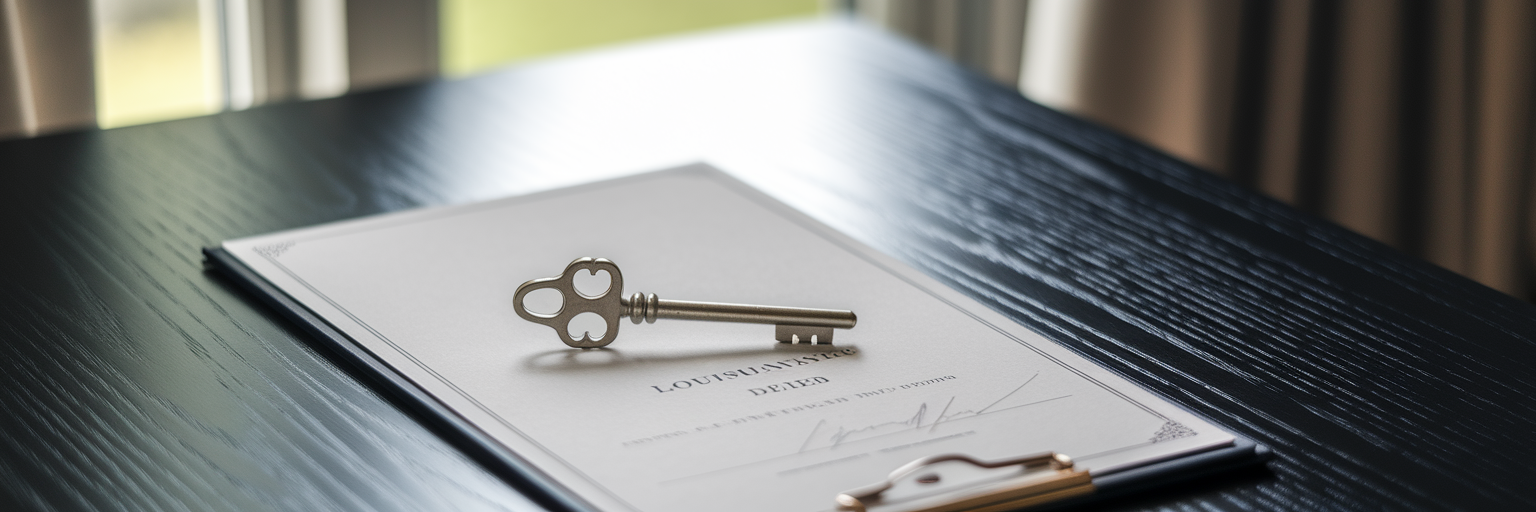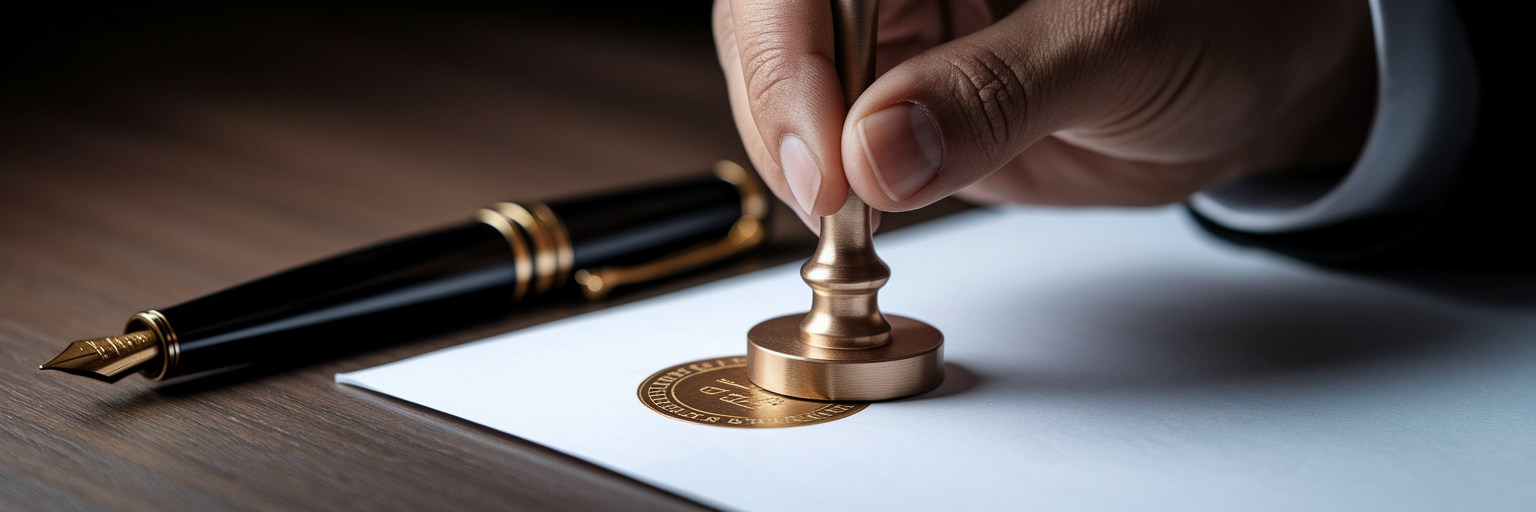How Notarized Documents Safeguard Your Louisiana Property

The Foundation of a Secure Property Transaction
Louisiana's legal system, rooted in a civil law tradition, gives the notary public a role far different from that in other states. Here, a notary is not just a witness to a signature. A Louisiana property law notary is a public official responsible for drafting, explaining, and certifying legal documents, ensuring they meet strict state requirements. When you get a document notarized for a real estate transaction, you are participating in the creation of an "authentic act."
This formal process involves more than a simple stamp. The notary verifies the identity of all parties, confirms they are signing willingly and with full understanding, and records the event. For a property sale, this isn't a mere formality. It is a legal necessity for the Act of Sale to be fully effective and enforceable against others. This authentic act serves as the bedrock of your transaction, providing a level of legal certainty that protects everyone involved from the very beginning.
Legal Protections for Buyers and Sellers

That authentic act we just mentioned provides tangible safeguards for both parties in a real estate deal. It transforms a simple agreement into a legally powerful instrument, minimizing risk and providing peace of mind.
How Notarization Protects the Buyer
For a buyer, a properly notarized Act of Sale is your ultimate proof of ownership. It is the key document required to record the sale with the parish Clerk of Court, which officially transfers the title to your name. This public record prevents the seller from attempting to sell the property to someone else and is critical for securing title insurance. A real estate closing notary ensures every detail is correct, giving you confidence that your claim to the property is clear, official, and legally sound.
How Notarization Protects the Seller
Sellers also gain significant protection. The notarized document creates a definitive and legally binding record of the transaction's date, price, and terms. This protects you from any future claims or disputes from the buyer alleging the sale never happened or that the terms were different. Once the authentic act is signed and recorded, your responsibilities regarding the property are formally concluded, providing a clean break and preventing lingering liabilities.
In Louisiana courts, an authentic act is considered self-proving evidence, which means it is accepted as true on its face. This legal strength gives both parties confidence that the transaction is final and secure. To ensure these critical steps are handled with the necessary expertise, you can find reliable guidance through the services available at JP Notary.
The High Cost of Improper Notarization
While proper notarization provides a shield, cutting corners can leave you legally exposed. The question of how to notarize a deed in Louisiana is answered by following strict procedures, and failure to do so can have severe consequences. Common but critical errors include:
- Failing to properly verify identity with a valid, government-issued photo ID.
- Not having all required signatories physically present at the time of signing.
- Using a notary whose commission has expired or is invalid.
- Omitting the official notary seal, signatures, or other required information.
These are not minor clerical mistakes. An improperly executed document can be declared void by a court, rendering your deed unrecordable and creating a "cloud on the title." This defect makes it nearly impossible to sell or refinance the property in the future without costly legal action to fix the original error. The rules for notarized real estate documents Louisiana are strictly defined to protect the public, as outlined by the Louisiana Secretary of State. Adhering to them is non-negotiable.
| Factor | Properly Notarized Document | Improperly Notarized Document |
|---|---|---|
| Legal Validity | Legally binding and enforceable in court | May be declared void or invalid |
| Property Title | Clear title can be recorded and insured | Creates a 'cloud on title,' preventing sale |
| Future Transactions | Property can be sold or refinanced smoothly | Requires costly legal action to correct defects |
| Fraud Protection | High level of protection against forgery | Vulnerable to fraud and legal challenges |
A Notary's Role in Upholding Louisiana Law

Ultimately, a Louisiana notary serves as an impartial guardian of the transaction's integrity. As a state-appointed official, their primary duty is to the public, not to any single party. This means their job is to verify identities, confirm all parties are of sound mind and acting without coercion, and ensure the document complies with all legal formalities. A notary’s expertise in Louisiana’s unique requirements is not just a benefit but a necessity for a secure transaction.
We understand that life is busy, and coordinating a closing can be challenging. That is why a mobile notary New Orleans service brings this essential expertise directly to you, whether at your home, office, or another convenient location. This combination of professionalism and convenience ensures your documents are handled correctly without disrupting your schedule.
For assistance with real estate closings and other notarial needs in New Orleans or Jefferson Parish, contact JP Notary at 504-513-7333 or visit our website for more information. To ensure our services are accessible to the entire community, information is also available in Spanish on our website. For professional notary services in New Orleans, contact JP Notary today.
Need Professional Notary Services?
Contact JP Notary for reliable, professional notary services in New Orleans.
